Sunscreen does more than protect skin—it also demands protection. Similarly, modern cream and liquid blushes require innovative packaging that preserves freshness, enhances application, and strengthens brand appeal.
The way both are sunscreen packaging plays a crucial role in preserving potency, ensuring user satisfaction, and reinforcing brand identity.
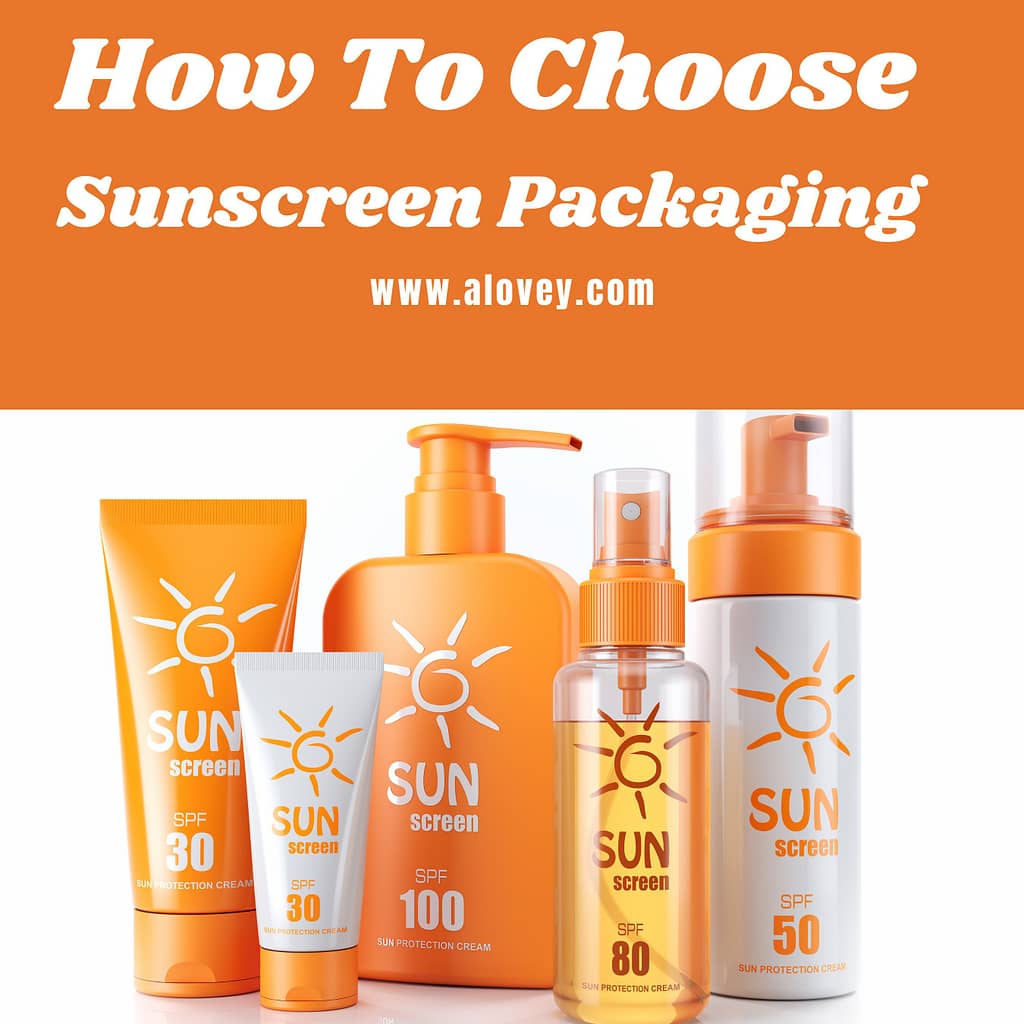
Fortress Against Degradation: Protecting Potent Formulations
Light Barrier Matters
Sunscreen active ingredients like zinc oxide and chemical UV filters can break down when exposed to light.
Sunscreen Packaging must shield them effectively—opaque materials such as aluminum tubes or tinted plastics (blue being a popular choice) are excellent options because they block harmful UV
Furthermore, plastics like PP or PET reduce transmission in parts of the UV spectrum, but UV-A (280–400 nm) can still penetrate.
To compensate, coatings or sleeves incorporating UV absorbers (e.g. benzotriazole or nanoparticles of TiO₂, ZnO) are often applied.
Air-Tight Is Right
Exposure to air can oxidize sunscreen components and reduce SPF effectiveness. Sunscreen packaging with airless pumps, secure caps, or innovative barrier layers (like EVOH or aluminum metallization) helps preserve formulation
Heat & Durability
Sunscreen is often exposed to heat—be it beach sun or inside cars.
Sunscreen packaging materials must withstand these conditions without warping or leaking. Durable plastics and heat-resistant polymers offer such robustness.
User Experience: Convenient and Intuitive
Sunscreen Tubes
Compact, lightweight, and ideal for lotions and creams—squeeze or flip-top tubes are reliable for controlled, waste-minimized
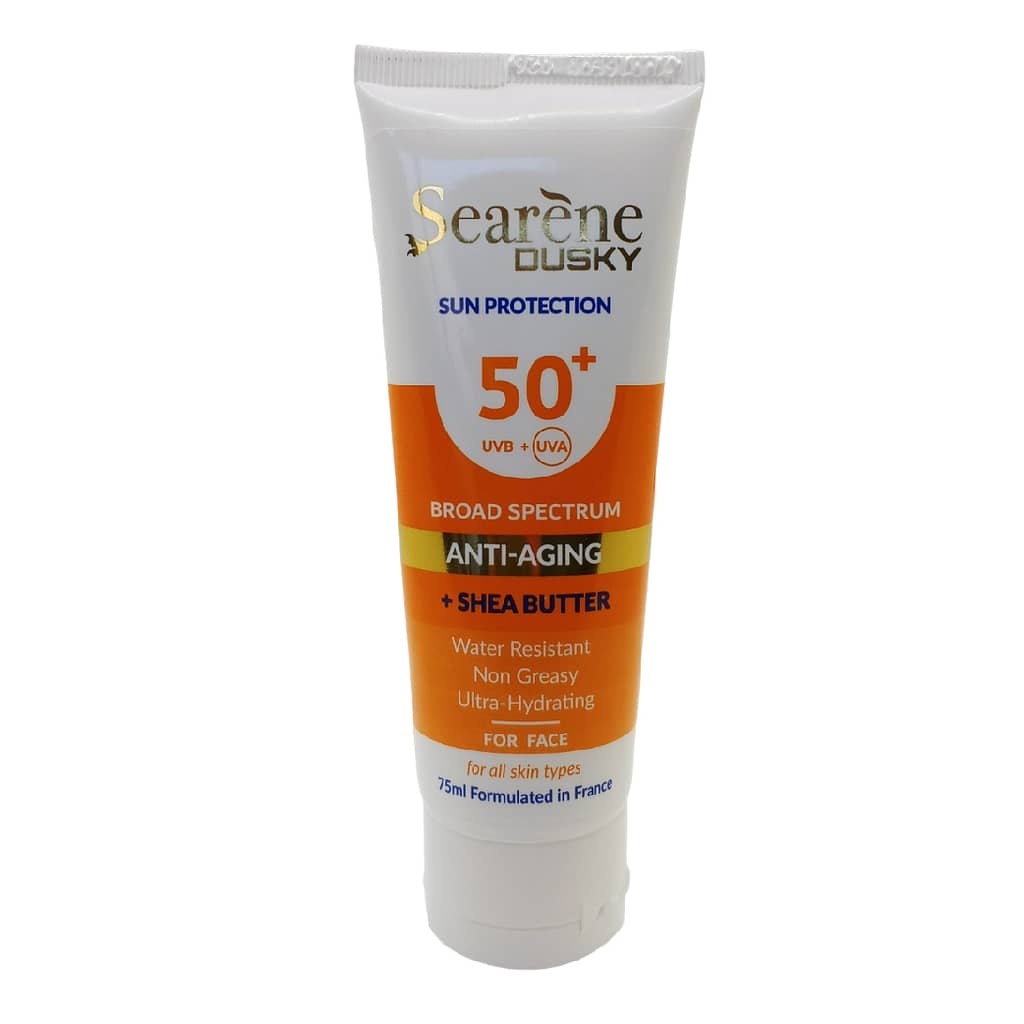
Spray Bottles
These offer quick, even application over broad areas—great for reapplication on beach days. However, formula safety and inhalation risks must be evaluated.
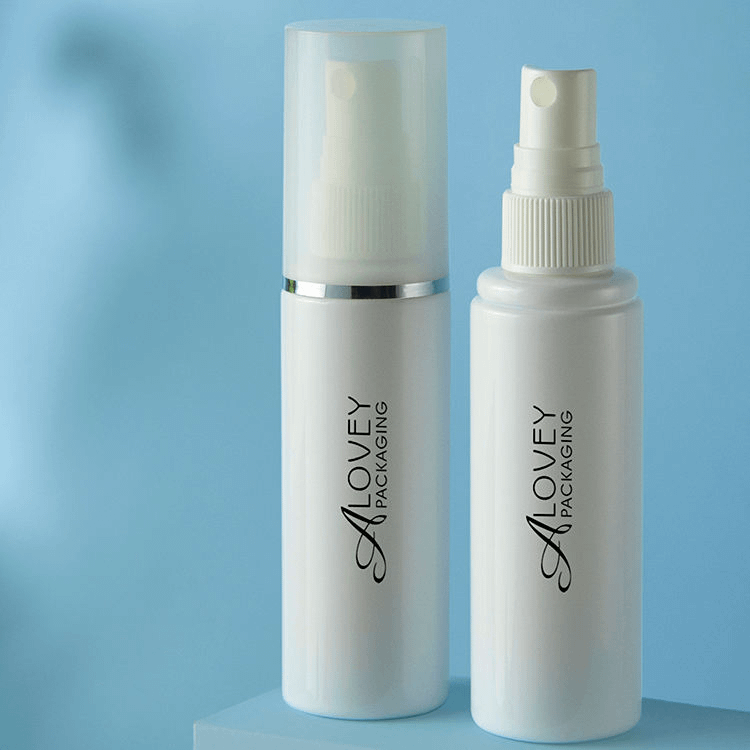
Sticks
Mess-free and precise, sunscreen sticks are perfect for the face, lips, or ears—especially appreciated by active users.
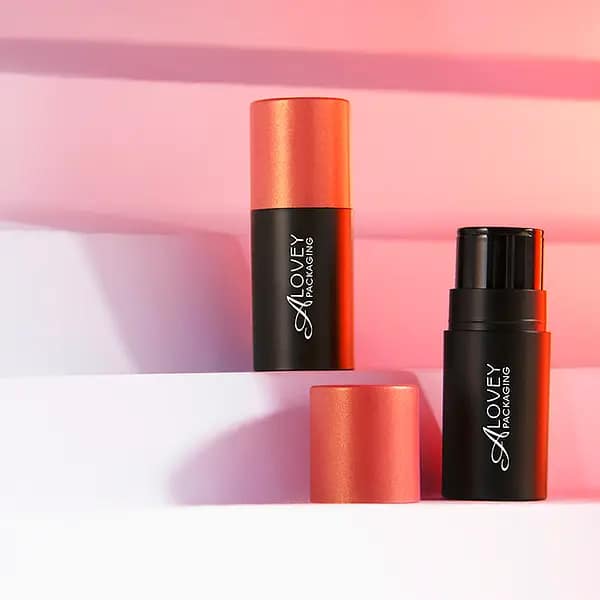
Pump Dispensers
Hygienic and mess-free, pump bottles (especially airless types) are excellent for home use, families, or high-end formulations.
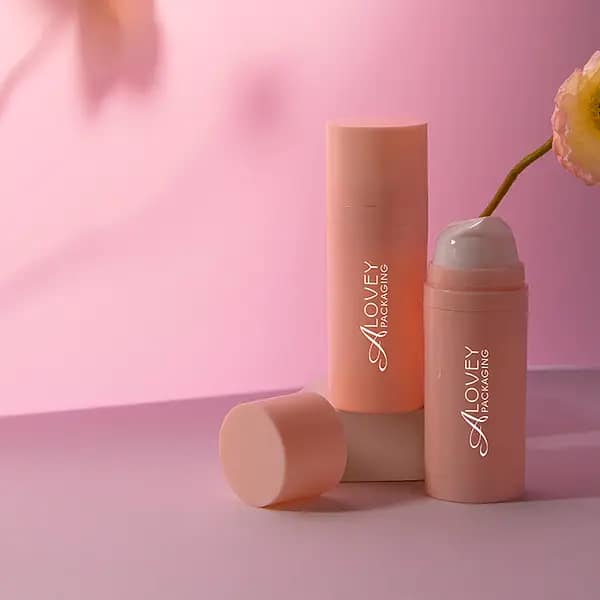
Blush Tubes
Growing in popularity for liquid and cream blush formulas, blush tubes offer precise dispensing, travel-friendliness, and mess-free use. Their soft material makes it easy to apply just the right amount, and their slim, elegant designs resonate with the makeup-loving consumer.
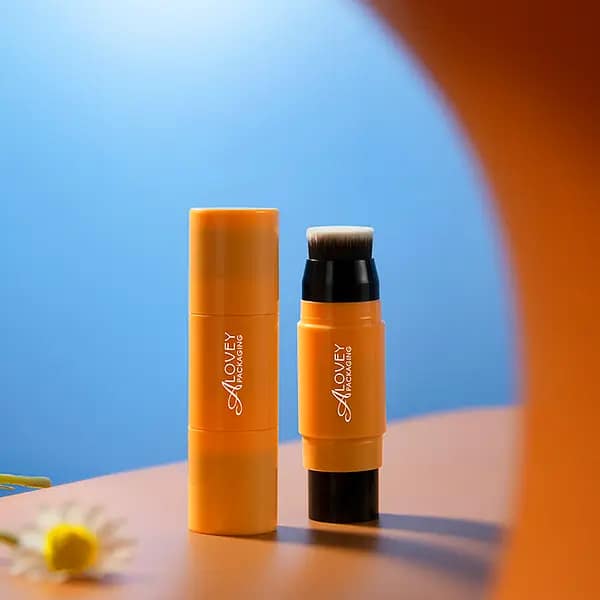
Compact Powder Case
A beauty classic—compact cases feature mirrors, magnetic closures, and compartments for applicators, making them perfect for touch-ups throughout the day. Their design merges practicality with elegance. This design is suitable for sunscreen powder
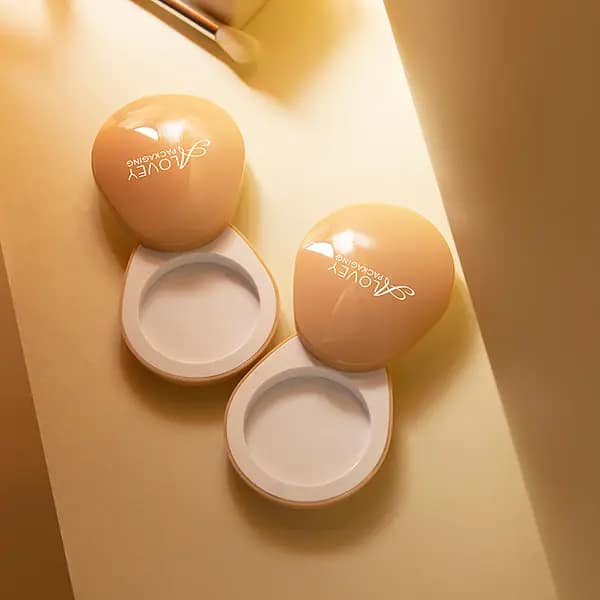
Squeeze Bottles
A versatile packaging option for sunscreens, liquid blushes, foundations, or serums. They provide controlled dispensing
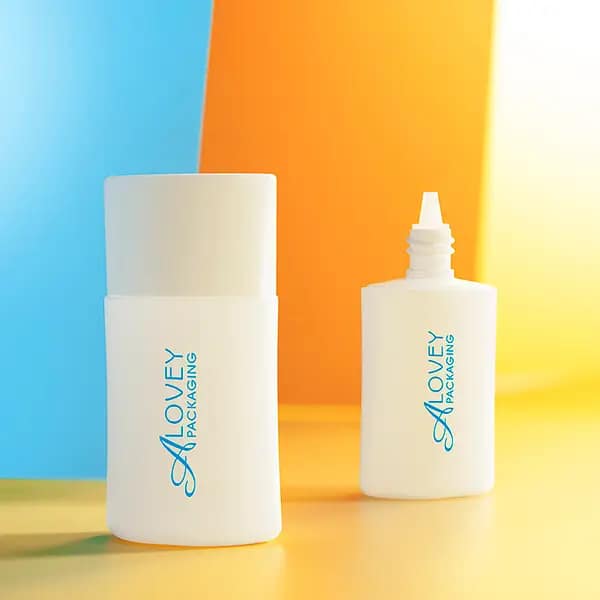
Pouches & Refills
Pouches offer promising sustainable benefits—less plastic, lower shipping weight, and refill compatibility.
Elevate Your Brand: Aesthetic Appeal & Sustainability
Design & Messaging
Sunscreen packaging is the silent salesperson: vibrant colors, clear SPF labeling, simple pictograms, and waterproof printing make for standout shelf presence and user clarity.
Eco-Conscious Options
Sustainability is non-negotiable for modern consumers. Materials like aluminum (recyclable), PCR plastics, biodegradable bioplastics, or refillable systems resonate well
Regulatory Safety
Sunscreen is regulated as an OTC in many regions. Some Sunscreen packaging must comply with FDA or EU standards—including labeling (SPF, water-resistance, ingredients), tamper-evident seals, and safe materials.
Putting It All Together: A Checklist for Choosing Sunscreen Packaging
| Consideration | Key Benefits | Examples |
| Protection | Preserves SPF, prevents oxidation and thermal stress | Opaque materials, airless systems, UV coatings |
| Convenience | Improves user experience & portability | Tubes, sprays, sticks, pumps, pouches |
| Sustainability & Identity | Builds trust, reduces environmental impact | Recyclable, biodegradable, refillable packaging |
| Compliance | Meets legal standards & assures safety | Clear labels, tamper seals, FDA/EU-compliant materials |
Why It Matters
Efficacy Retention
Carefully chosen sunscreen packaging protects formulation integrity—including active ingredient stability, minimizing degradation from light, heat, and oxygen.
Market Differentiation
A sleek, user-focused design combined with eco-conscious materials helps products rise above the competition.
Consumer Confidence
Transparent and compliant labeling, combined with secure packaging, builds trust—resulting in better brand reputation and lower returns.
How To Choose The Right Sunscreen Packaging
Define Primary Use: All-over vs. targeted vs. reinforcement.
Identify Formula Type: Emulsion, anhydrous stick, powder, volatile spray.
Assess Active Stability Needs: Photolabile? Oxidation-prone? → Airless / opaque.
Determine Dose Per Application: Align pump output / click dose to recommended 2 mg/cm22 mg/cm2 guidance (and educate).
Evaluate Consumer Context: Outdoor, athletic, office, vanity, travel.
Sustainability Targets: Refill? PCR? Carbon reduction narrative?
Regulatory Territory: Label space, symbols, bilingual obligations.
Budget & MOQs: Drives complexity (e.g., custom molds vs. stock).
Brand Differentiation Levers: Accessory aesthetics, smart dosing, tactile finishes.
In Summary
Your sunscreen packaging isn’t just a cosmetic container—it’s part of the formula’s defense system, the user’s experience, and your brand’s story. By selecting materials and formats that block UV, seal out air, deliver convenience, and align with sustainability and regulatory demands, you craft a product that truly protects—both skin and brand.





